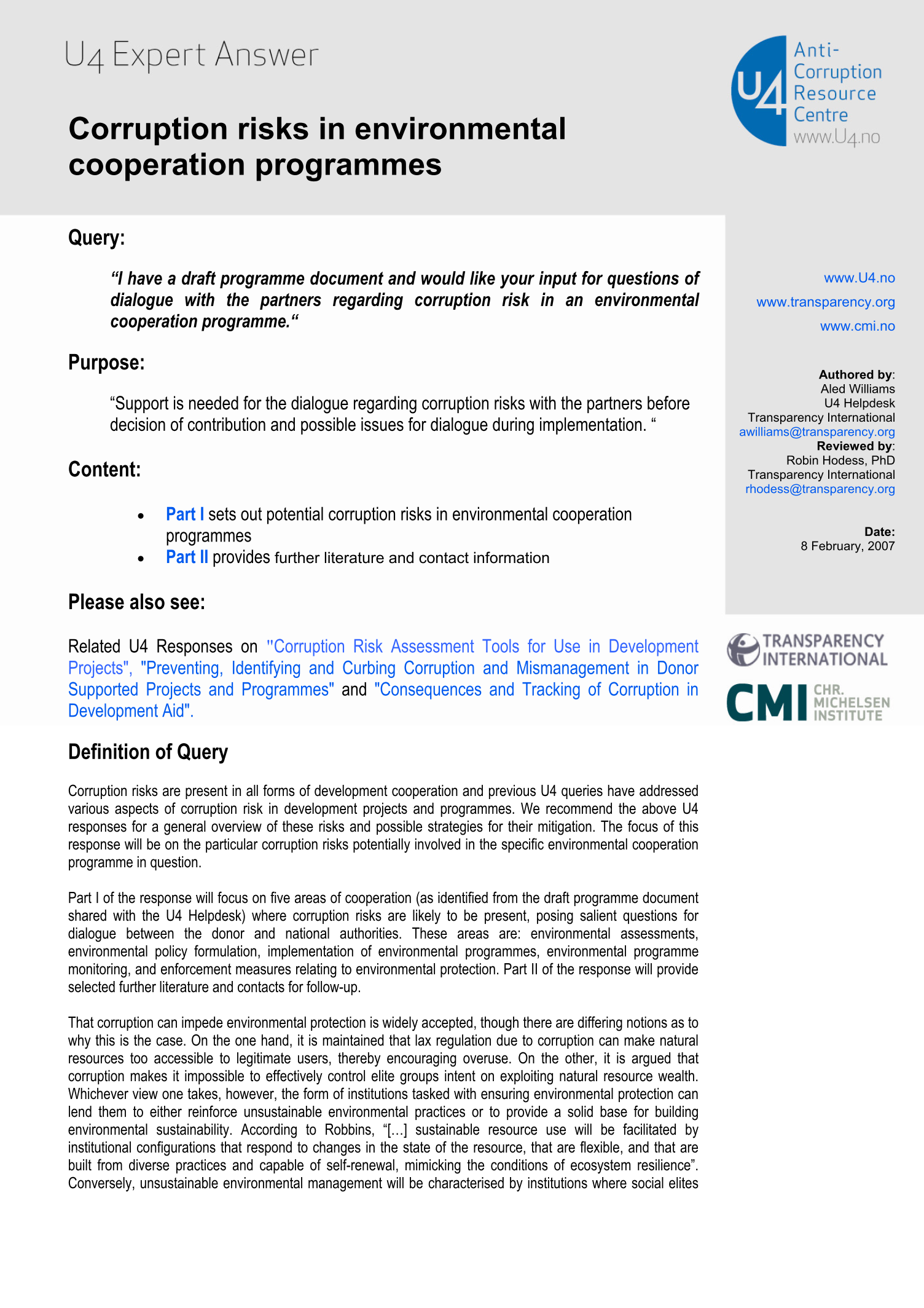U4 Helpdesk Answer
Corruption risks in environmental cooperation programmes
Corruption contributes to unsustainable environment practices and resource overuse, while granting elite groups control over natural resource wealth and potentially depriving other user groups. In development cooperation, corruption risks are especially acute in five critical areas, including environmental assessments, environmental policy formulation, implementation of environmental programmes monitoring and enforcement measures relating to environmental protection.

Cite this publication
Williams, A. 2007. Corruption risks in environmental cooperation programmes. Bergen: U4 Anti-Corruption Resource Centre, Chr. Michelsen Institute (U4 Helpdesk Answer Helpdesk 2007)
Disclaimer
All views in this text are the author(s)’, and may differ from the U4 partner agencies’ policies.
This work is licenced under a Creative Commons Attribution-NonCommercial-NoDerivatives 4.0 International licence (CC BY-NC-ND 4.0)